Part of my endeavor while homeless has been to discern how it happens to seemingly different types of people and why they remain homeless. Of course, I know what happened to me, but what became problematic is how much I enjoy certain aspects of homelessness; and there seemed to be something to learn about myself here. Still, the desire to get out of this situation and never return to it has been cause enough for introspection and a deterrent to jumping at an easy fix, assuming there were such a thing.
A young, well-meaning Palestinian man, by the way, who hangs around the middle-eastern garage is always telling me to get a new vehicle. He practically shouts it every time he sees me. This fellow thinks I am really stupid to drive an old ugly, rusted-out, repair-prone vehicle. I laugh for lack of any easy way to explain my experience.
Certainly, the cost of housing is a chief constraint for those living in the rough, even while fewer and fewer people in general these days have choices about where and with whom they live. (A fair number of single adults at my workplace live with family, for example.) Even sharing an apartment here, unless one really does not care where one lives, starts at $500, though the $800-1000 range is more common. Cheaper arrangements are available as one gets further away from the coast, but then one has to account for a longer commute to work and the gradual debilitating effect of a constant sense of risk in living in run-down neighborhoods. Still, one might think being homeless is utterly out of the question and that one must be housed at any cost.
Housing at any cost usually means the shelter for those who are homeless. Perhaps I mentioned before that shelters are located in places where few people want to live, such as downtown, and are often too far away from the workplace. On several occasions, I have contemplated what shelter life might be like, just in case that were to become an unavoidable last resort. I tried to imagine walking to the train, catching the train to the bus, bussing to the general vicinity of work, and then walking the three or four blocks to get to the door. The entire circuit would take an hour or more each way.
There are other reasons why someone like myself would avoid the shelters, the lack of privacy, the threat of theft, and the strange assortment of denizens there to mention a few. There are just as good reasons to avoid being housed. I cannot stand a dark or ugly place to live. I cannot tolerate poorly-educated, ill-bred, or loud people for any length of time. That eliminates just about anyone with whom I might share a house at my income level.
Recently, a non-profit agency offered me a room in a house owned by a wheelchair-bound, disabled woman. She suffered brain injury and paralysis of the lower body from a plane crash that killed the pilot, her lover and fiance. That was thirty years ago. She was a family-practice physician, had two children, and might have remarried. I was to help this lady get organized and tend to her elderly mother who was losing her hearing and showing early signs of dementia. Her live-in caregiver and boyfriend was a high-functioning autistic person.
Let us call her Suzie. She drove that wheelchair like her house was the Autobahn. I had to jump out of the way more than a few times. She insisted that I eat soy products since these were staples in her household. As intelligent as she was, she could not seem to grasp my fear and aversion to genetically-modified foods of which soy is only one. The fact that I am a normal-functioning human being on two healthy, yoga-practicing, running legs who can really get things done in half the time it takes most anyone else earned me the regular comment that I am "hyper."
Of course, she was not a bad person, just very bossy and quite aggressive. I might have been able to manage her personality, except that my recent history of post-traumatic stress disorder, homelessness, and now being not-quite-housed, but somewhere in-between, just made me feel anxious after an eight-hour work day. I wanted to come home to . . . well, nothing. Maybe some classical music. Even though I had planned to be out of my truck by Easter, as that would mark two years, I was having second thoughts.
It was Easter Sunday. I had escaped for the day to the beach to hear the ocean, to find a point of peace inside, to rid myself of the anxiety that going home to Suzie evoked. The constriction in my chest that would start as soon as I got into the cab of my truck after work, or anytime I drove "home," had completely subsided by early evening; and I knew I would be homeless again, back in my truck, within days. It was not ideal, but keeping my sanity had become a priority. Anything I could do to stay in tune and out of anxiety was the route I would take, and that had become a habit with me.
And so it passed.
Now, interestingly, and parallel to the theme of eschewing anything that turned up the internal pressure, I realized there were just too many real advantages to being homeless over being housed. This is not the best news for me or anyone else. I had, as it were, gone native.
I had missed the cold outdoor showers, the privacy of my truck, the anonymity of parking lots, and the way I could wind down after work, even though at times the loneliness could be crushing. Yet, somehow, I needed that mental and emotional freedom. Puzzled by my new discovery and looking for a way to justify it, I decided to ask my homeless compatriots why they were homeless and whether or not they had that same urge to freedom.
You might guess the answers. Chris, for example, whom I met one unhappy night so lonely I was raining tears, told me flat out that he does not like being told what to do by anyone no matter who they are or what their business. Cynthia, on the other hand, can take people selectively and on her own terms. Her cat, though, does not like people at all (herself excepted, of course). This is not the widest cross-section of homeless humanity, but you get the point. Not being bothered is at a premium out here. Not having to explain or excuse oneself. Not having to fit into another person's version of reality.
The freedom we all deeply want and need.
How to Connect Google Home to Wi-Fi
-
Your Google Home sits silently on the counter, its lights blinking with
unfulfilled potential—but without Wi-Fi, it’s just an expensive […]





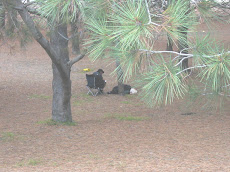



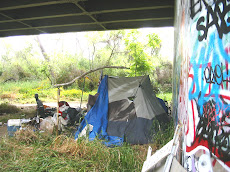







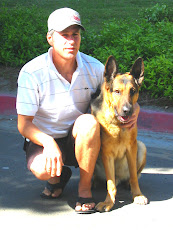
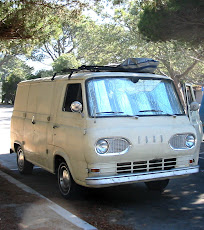
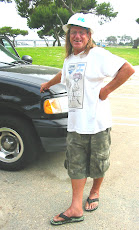









Really love your blog and the wisdom you share. There is an interesting book I bought, read and still have, by two British authors, titled Eccentrics:A Study of Sanity and Strangeness by David Weeks, Jamie James, who note that in America we tend to medicate or lock eccentrics up whereas in other countries eccentrics are a treasure and thus allowed to be left alone.
ReplyDeleteHello, MotherLodeBeth,
ReplyDeleteThank you for the lovely note. I must be in the wrong country! That idea, by the way, has occurred to me many times, that I ought to find friendlier shores.
Please write again!